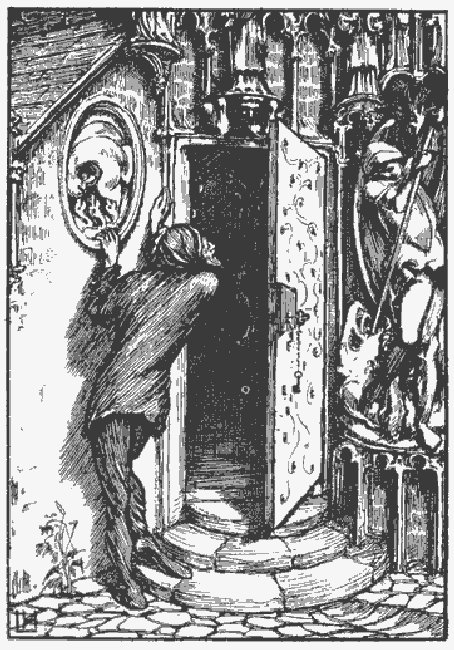
The second of two stories called "The Were-Wolf" in H.P. Lovecraft Selects is by Clemence Housman from 1896. Housman uses the werewolf as a very natural and effective inspiration for a story about identity.
In his essay on horror fiction, from whence the collection of stories is drawn, Lovecraft wrote, "Clemence Housman, in the brief novelette “The Were-wolf”, attains a high degree of gruesome tension and achieves to some extent the atmosphere of authentic folklore." This last part is certainly true from the beginning which is the description of a community by fireside from the point of view of a child. Already the tale provides an example of a human behaving as an animal when the boy is described as preferring to crawl on all fours. But the story doesn't centre on him, instead focusing on a pair of mighty brothers--Sweyn, whose prowess in almost everything is unsurpassed, and Christian, who alone can run faster than Sweyn.
The werewolf is a woman in white fur who charms everyone but Christian. I was surprised how similar this wolf woman was to the one in Marryatt's story--another very beautiful woman in white fur.

The woman being taken as a benevolent wonder by everyone else in the community is mirrored by growing distrust in Christian on the part of his brother. If the name "Christian" makes you think the story's going in the direction of a fairly obvious Christian allegory, I'm afraid you'd be right. But before Housman gets to that point she describes a fascinating chase scene when the woman, White Fell, tests Christian's famous speed. They seem to run through snow and woods for several nights and Christian starts to get delirious;
He grew bewildered, uncertain of his own identity, doubting of his own true form. He could not be really a man, no more than that running Thing was really a woman; his real form was only hidden under embodiment of a man, but what it was he did not know. And Sweyn's real form he did not know. Sweyn lay fallen at his feet, where he had struck him down—his own brother—he: he stumbled over him, and had to overleap him and race harder because she who had kissed Sweyn leapt so fast. "Sweyn, Sweyn, O Sweyn!"

This does have the flavour of folklore though with maybe too much of an analytic edge. And with descriptions of crushed limbs and blood it's about as gruesome as Lovecraft said, too.

No comments:
Post a Comment